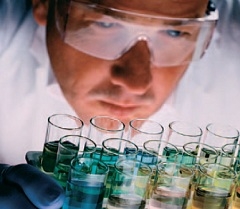- Home page /
- News /
- Company news /
- Chemical testing mitigates environmental impact
Chemical testing mitigates environmental impact
12.03.2012

At the Schlumberger Ecotoxicological Laboratory in Bergen, Norway, a team of dedicated chemists is committed to developing chemicals not only vital to the oil and gas industry, but considerate of potential environmental impact. Guided by both the strict environmental regulations of the North Sea region and the laboratory’s founding mission, the scientists’ testing - and results - can be applied in labs worldwide.
Scientists at the laboratory work toward creating industrial compounds that can be broken down in ecosystems. Complying with environmental regulations is important, but the laboratory’s ultimate goal is to ensure that such compounds do more than just comply.
In 1984 the laboratory was founded to test how new chemicals affected the environment and has expanded globally, using its influence to spread North Sea regulations to new areas, including the Middle East and Africa. The research performed in the laboratory has helped Schlumberger develop chemical compounds that aid in mitigating environmental impact during E&P operations.
The laboratory chemists perform the necessary testing to register chemicals for the North Sea, including acute toxicity to marine organisms and bioaccumulation. Such testing results in the production of chemicals less harmful to aquatic wildlife and more biodegradable in ecosystems. They also conduct toxicity tests on produced water, slop water, and well water.
Although most of the laboratory’s work comes from Schlumberger and M-I SWACO in Europe, other clients and centers around the world also benefit. In a recent toxicity test for a water treatment project in Brazil, the samples of the effluent showed a large decrease in algae toxicity, proving the efficiency of the treatment plant.
The Ecotoxicology Laboratory advocates the stringent North Sea regulations to countries where there are currently little or no regulations. Though the basic ecotoxicological properties of chemicals are not region specific, creating cleaner chemicals is of global importance.

